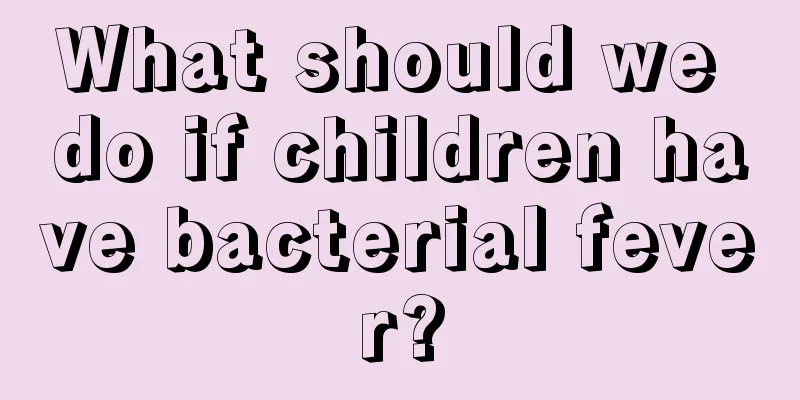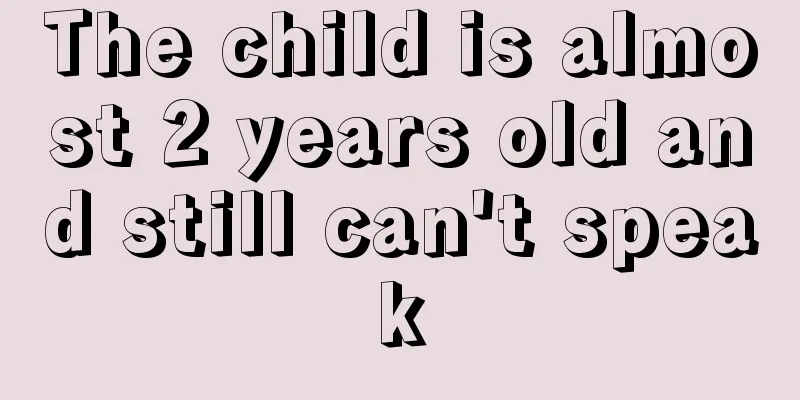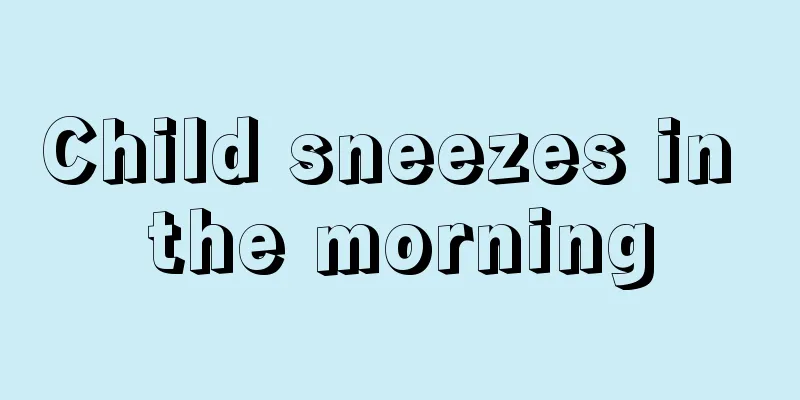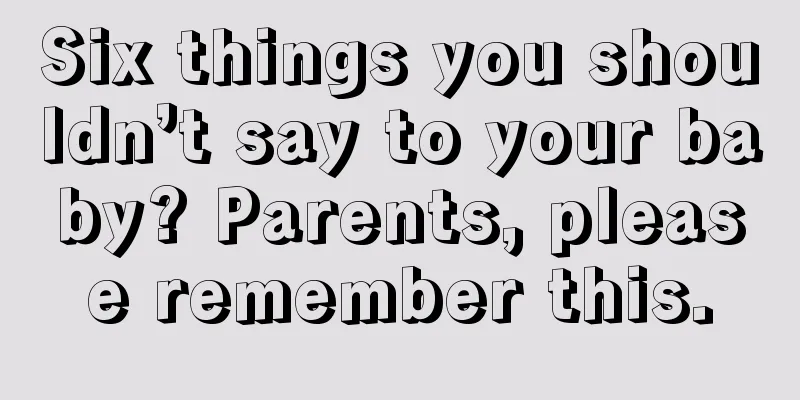What should we do if children have bacterial fever?

|
Children often suffer from various diseases because they have poor physical resistance. Especially when parents spoil their children blindly, do not pay attention to their lives, and often let them eat snacks, it is easy for children to get sick every other day. Among them, fever caused by bacterial infection in children is very common. So what should we do when a child has a fever? Let me introduce it to you below! If a child has a high fever above 39 degrees Celsius, pneumonia should be suspected. If the child has a severe cough and persistent high fever, and in severe cases, convulsions may occur, the child should be sent to the hospital for treatment immediately. Many people think that pneumonia is caused by fever. This view is incorrect and the cause and effect are reversed. The most worthy of attention is the fever caused by bacterial dysentery. The fever is very high. Once coma occurs, it may be a manifestation of bacteriotoxicity. The patient should be sent to the hospital for emergency treatment in time, otherwise his life will be in danger. To deal with children's fever, most families currently use two methods: one is to take antipyretic drugs, and the other is to use external cooling. In fact, neither of these two methods is worth recommending. Fever is an immune response of the human body to fight against germs, and germs are easily killed at relatively high temperatures. Many people have "fever phobia", which protects the body, but parents are often afraid that their children will develop a fever and give them antipyretics from time to time. As a result, even if the temperature drops temporarily, it will rise again after a while. The correct approach is to supplement children with certain nutrients and sufficient water in time. If you really need to give your child antipyretics, you must strictly follow the doctor's prescription. The normal basal body temperature of children is 36.9℃~37.5℃. Generally, when the body temperature exceeds the basal body temperature by more than 1°C, it is considered a fever. Among them, low fever refers to body temperature fluctuating around 38°C, and high fever refers to body temperature above 39°C. Continuous fever for more than two weeks is called long-term fever. If a child has a fever caused by bacterial infection, you must take the child to the hospital for examination in time. If not examined and treated in time, the high fever may lead to other diseases. In severe cases, the child may even fall into a coma. Therefore, as a parent, you must pay attention to it. Taking the child for treatment in time is the wisest choice. |
<<: What causes bacterial infections in children?
>>: Can children's ADHD be cured?
Recommend
What to do if your baby has weak spleen and stomach
The baby's development is not complete, and i...
What to do if a child has red bumps on his body
The physical health of children is what parents c...
My baby has not grown any teeth at 7 months old
Since the baby is born, parents' attention ha...
Why does my 1-year-old baby have white spots on his face?
Some newborn babies show physical abnormalities, ...
Symptoms of iron deficiency in eight-month-old babies
In our lives, many babies lack some trace element...
The characteristics of children from single-parent families are actually these
The education of children from single-parent fami...
Stereotyped behaviors in children with autism
In fact, some parents are unable to identify when...
How to treat amblyopia in children
The incidence of amblyopia in children is becomin...
How to treat a five-year-old child who grinds his teeth while sleeping
Recently, many children have started to grind the...
Two Diagnoses of Periventricular Leukomalacia in Children
It is normal for children to get sick, so parents...
Symptoms of mental illness in children
Some diseases will manifest themselves from an ea...
Reasons why children suck their fingers
If your baby is three or four months old, he will...
What are the precautions for letting your baby swim?
Nowadays, most families have only one child, and ...
What should I do if I have congenital enamel hypoplasia?
When many children are growing teeth, sometimes t...
What's up with that crazy kid?
In daily life, we often hear about the phenomenon...









